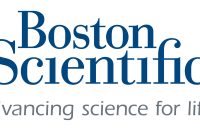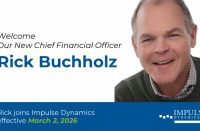Norman Radow, Managing Partner at Strul Medical Group, Joins Company’s Board
NASDAQ, TSX: NVCN
VANCOUVER, Sept. 16, 2019 /PRNewswire/ – Neovasc, Inc. (“Neovasc” or the “Company”) (NASDAQ, TSX: NVCN), a leader in the development of minimally invasive transcatheter mitral valve replacement technologies and in the development of minimally invasive devices for the treatment of refractory angina, today announced that Norman Radow, Managing Partner at Strul Medical Group (“Strul”), a leading investment firm that participated in Neovasc’s $11.5 million financing, which was completed in May 2019, has been appointed to the Company’s Board of Directors, effective immediately. Concurrently, Dr. Jane Hsiao has stepped down from Neovasc’s Board in order to increase her focus on other business interests, effective immediately.
In addition to his duties as a Managing Partner at Strul, Mr. Radow founded the RADCO Companies, an opportunistic real estate investment group specializing in the acquisition and repositioning of multifamily assets, in 1994. In 2006, RADCO became a nationally recognized workout company and then oversaw much of the Lehman bankruptcy estate residential portfolio from 2008 through 2010. Today, RADCO owns approximately 17,000 apartment units in 13 cities across 8 states with an asset value in excess of $2 billion, and has approximately 500 employees. In both 2017 and 2018, RADCO was named one of the fastest growing private companies in Atlanta by the Atlanta Business Chronicle, one of the fastest growing mid-market companies in the state of Georgia by the Association for Corporate Growth, and one of the fastest growing companies in the nation by Inc. 5000. In 2018, Norman was recognized as one of the Most Admired CEOs in the commercial real estate industry by the Atlanta Business Chronicle. Prior to founding RADCO, Mr. Radow practiced law. He was awarded a Juris Doctor by New York Law School in 1981 and currently serves on its board. Mr. Radow also received a Bachelor of Arts degree from SUNY Plattsburgh in 1978.
“On behalf of the entire Neovasc Board of Directors, I would like to extend my appreciation to Jane for her valuable guidance since her appointment as a Director in July 2007,” said Steve Rubin, Chairman of Neovasc’s Board of Directors. “We also welcome Norman to our Board of Directors and have confidence that he will have an immediate and highly beneficial impact on Neovasc. Norman’s financial expertise and business acumen will be critical to Neovasc as we continue to grow our business.”
About Neovasc Inc.
Neovasc is a specialty medical device company that develops, manufactures and markets products for the rapidly growing cardiovascular marketplace. Its products include the Neovasc Reducer™ (the “Reducer”), for the treatment of refractory angina, which is not currently commercially available in the United States and has been commercially available in Europe since 2015, and the Tiara™, for the transcatheter treatment of mitral valve disease, which is currently under clinical investigation in the United States, Canada and Europe. For more information, visit: www.neovasc.com.
Forward-Looking Statement Disclaimer
This news release contains forward-looking statements within the meaning of the U.S. Private Securities Litigation Reform Act of 1995 and applicable Canadian securities laws regarding the future impact of the board changes on the Company, the continued growth of the Company and the rapidly growing cardiovascular marketplace. Words and phrases such as “continue”, “strategy”, “goal”, “would”, “may”, “could”, “should”, “expect” and “will”, and similar words or expressions, are intended to identify these forward-looking statements. Forward-looking statements are based on estimates and assumptions made by the Company in light of its experience and its perception of historical trends, current conditions and expected future developments, as well as other factors that the Company believes are appropriate in the circumstances. Many factors and assumptions could cause the Company’s actual results, performance or achievements to differ materially from those expressed or implied by the forward-looking statements, including, without limitation, the substantial doubt about the Company’s ability to continue as a going concern; risks relating to the possibility that the Company’s common shares may be delisted from the Nasdaq Capital Market or the Toronto Stock Exchange, which could affect their market price and liquidity; risks relating to the senior secured convertible notes (the “Notes”) issued pursuant to the November 2017 private placement (together, the “2017 Financing”), resulting in significant dilution to the Company’s shareholders; risks relating to the Company’s need for significant additional future capital and the Company’s ability to raise additional funding; risks relating to cashless exercise and adjustment provisions in the Notes issued pursuant to the 2017 Financing, which could make it more difficult and expensive for the Company to raise additional capital in the future and result in further dilution to investors; risks relating to the sale of a significant number of common shares of the Company; risks relating to the conversion of Notes issued pursuant to the 2017 Financing, which may encourage short sales by third parties; risks relating to the Company’s conclusion that it did not have effective internal control over financial reporting as at December 31, 2018; risks relating to the Company’s common share price being volatile; risks relating to the influence of significant shareholders of the Company over the Company’s business operations and share price; risks relating to the Company’s significant indebtedness, and its effect on the Company’s financial condition; risks relating to claims by third parties alleging infringement of their intellectual property rights; risks relating to lawsuits that the Company is subject to, which could divert the Company’s resources and result in the payment of significant damages and other remedies; the Company’s ability to establish, maintain and defend intellectual property rights in the Company’s products; risks relating to results from clinical trials of the Company’s products, which may be unfavorable or perceived as unfavorable; the Company’s history of losses and significant accumulated deficit; risks associated with product liability claims, insurance and recalls; risks relating to use of the Company’s products in unapproved circumstances, which could expose the Company to liabilities; risks relating to competition in the medical device industry, including the risk that one or more of the Company’s competitors may develop more effective or more affordable products; risks relating to the Company’s ability to achieve or maintain expected levels of market acceptance for the Company’s products, as well as the Company’s ability to successfully build its in-house sales capabilities or secure third-party marketing or distribution partners; the Company’s ability to convince public payors and hospitals to include the Company’s products on their approved products lists; risks relating to new legislation, new regulatory requirements and the efforts of governmental and third-party payors to contain or reduce the costs of healthcare; risks relating to increased regulation, enforcement and inspections of participants in the medical device industry, including frequent government investigations into marketing and other business practices; risks associated with the extensive regulation of the Company’s products and trials by governmental authorities, as well as the cost and time delays associated therewith; risks associated with post-market regulation of the Company’s products; health and safety risks associated with the Company’s products and industry; risks associated with the Company’s manufacturing operations, including the regulation of the Company’s manufacturing processes by governmental authorities and the availability of two critical components of the Reducer; risk of animal disease associated with the use of the Company’s products; risks relating to the manufacturing capacity of third-party manufacturers for the Company’s products, including risks of supply interruptions impacting the Company’s ability to manufacture its own products; risks relating to the Company’s dependence on limited products for substantially all of the Company’s current revenues; risks relating to the Company’s exposure to adverse movements in foreign currency exchange rates; risks relating to the possibility that the Company could lose its foreign private issuer status under U.S. federal securities laws; risks relating to breaches of anti-bribery laws by the Company’s employees or agents; risks associated with future changes in financial accounting standards and new accounting pronouncements; risks relating to the Company’s dependence upon key personnel to achieve its business objectives; the Company’s ability to maintain strong relationships with physicians; risks relating to the sufficiency of the Company’s management systems and resources in periods of significant growth; risks associated with consolidation in the health care industry, including the downward pressure on product pricing and the growing need to be selected by larger customers in order to make sales to their members or participants; risks relating to the Company’s ability to successfully identify and complete corporate transactions on favorable terms or achieve anticipated synergies relating to any acquisitions or alliances; risks relating to the Company’s ability to successfully enter into fundamental transactions as defined in the Notes issued pursuant to the 2017 Financing; anti-takeover provisions in the Company’s constating documents which could discourage a third party from making a takeover bid beneficial to the Company’s shareholders; and risks relating to conflicts of interests among the Company’s officers and directors as a result of their involvement with other issuers. These risk factors and others relating to the Company are discussed in greater detail in the “Risk Factors” section of the Company’s Annual Report on Form 20-F and in Management’s Discussion and Analysis for the three and six months ended June 30, 2019 (copies of which may be obtained at www.sedar.com or www.sec.gov). The Company has no intention and undertakes no obligation to update or revise any forward-looking statements beyond required periodic filings with securities regulators, whether as a result of new information, future events or otherwise, except as required by law.
SOURCE Neovasc Inc.







